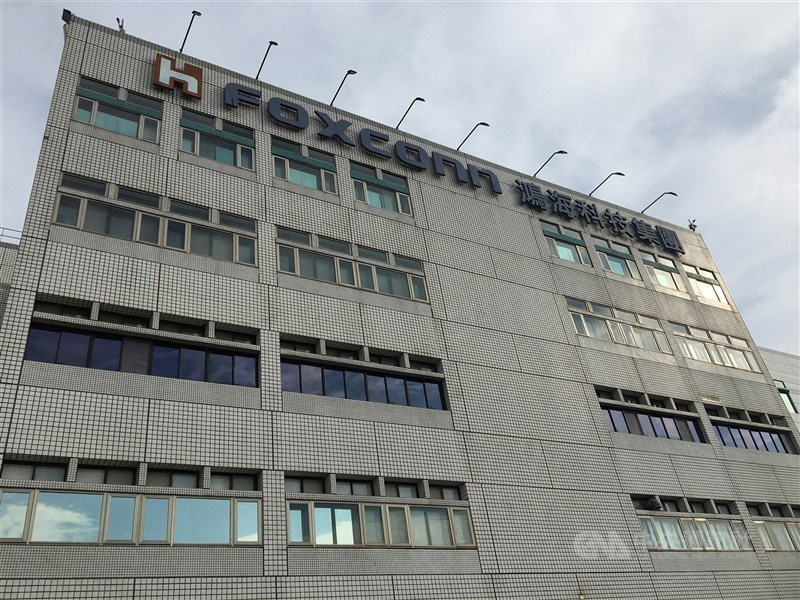[ad_1]
Taipei, July 22 (CNA) Taiwan-based manufacturing giant Hon Hai Precision Industry Co. is planning to launch commercial production of micro control units (MCUs) and power management chips used for auto production in 2024.
In an investors conference held at the Taiwan Stock Exchange, where Hon Hai shares are traded, on Thursday, Hon Hai spokesman James Wu (巫俊毅) said the mass production of MCUs and power management chips is part of the manufacturer’s efforts in developing key IC components for electric vehicle use.
In addition, Wu said Hon Hai, also known as Foxconn on the global market, aims to roll out silicon carbide (SiC), which is part of the advanced third generation ICs, on a mass production basis for EV charging use in 2023.
In 2024, Wu added, the company aims to start commercial production of OPA LiDAR (optical phased array in light detection and ranging) for self-driving, and SiC power modules for inverters in vehicles.
To avoid a supply shortage in smaller ICs, which have played an important role in automotive electronics, Wu said Hon Hai plans to mass produce 6-inch and 8-inch wafers in 2023, while commercial production of 6-inch SiC wafers are also scheduled to begin next year.
Hon Hai has promoted a “3 plus 3” initiative in recent years to expand from its contract manufacturing business into hardware and software integration in recent years. The development of EVs is central to the initiative, as it is building an EV supply chain.
The “3 plus 3” initiative refers to three emerging industries — EVs, robots, and digital healthcare — that are being developed through the applications of artificial intelligence, semiconductors and communications technologies.
Hon Hai has its own 8-inch wafer fab, while it acquired a 6-inch wafer fab from Macronix International Co. in August 2021.
In addition, the company has teamed up with Taiwan’s Yageo Corp., the world’s third-largest multi-layer ceramic capacitor (MLCC) supplier, since 2021, to set up a joint venture in Hsinchu to manufacture smaller semiconductors such as analogy ICs, which cost less than US$2 per unit.
In May, Malaysia-based investment holding firm Dagang NeXchange Bhd (DNeX) announced that it has signed a memorandum of understanding with Hon Hai to build a wafer fab in the Southeast Asian country.
Earlier this week, Hon Hai signed an agreement with NXP Semiconductors N.V., a global automotive semiconductor company, to jointly develop platforms for a new generation of smart connected vehicles.
The intensive effort in building EVs is part of the company’s plans to secure a 5 percent share in the global EV market in 2025 by generating NT$1 trillion (US$33.44 billion) in sales from EV production.
As part of its diversification into EV production, Hon Hai announced on May 12 that it has completed the purchase of a Lordstown Motors facility in Ohio and signed two manufacturing agreements with the embattled American automaker.
The factory is equipped with an ultimate annual production of 500,000 to 600,000 units a year, according to Wu.
Wu said Hon Hai has also focused on a “Build Operate and Localize (BOL) model to develop its EVs in India, Indonesia and Thailand.
Meanwhile, Wu said Hon Hai has faith in reporting better-than-expected results for the second quarter of this year after its consolidated sales for the April-June period rose 11 percent from a year earlier to NT$1.51 trillion, beating the company’s earlier forecast that the second quarter sales would stay little changed from a year earlier.
In June alone, Hon Hai’s consolidated sales soared 31 percent from a year earlier to about NT$526.20 billion.
Wu said although rising inflation affected demand for low-end tech gadgets, Hon Hai has felt a limited impact on its high-end device operations.
Hon Hai has scheduled an investor conference for Aug. 11 to detail its second quarter results and give third quarter guidance.
[ad_2]
Source link








